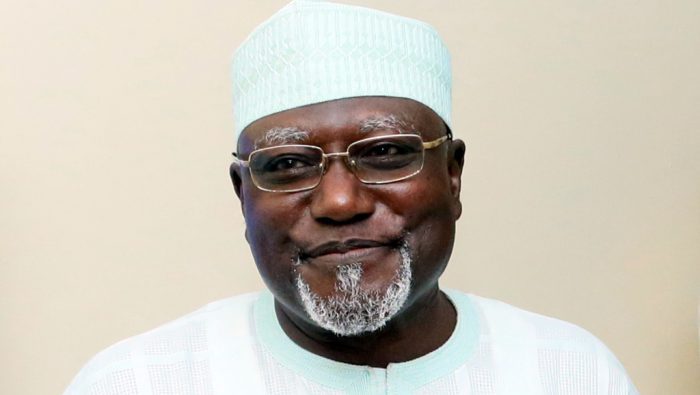- Lawal Daura: Another Cabal Member Ousted
Lawal Daura was, up until about noon on Tuesday, the Director-General of the Department of State Services. His kinsman, President Muhammadu Buhari, appointed him into that position on July 2, 2015. Both of them hail from Daura, Katsina State.
Daura’s three-year tenure was as controversial as his appointment itself. At inception, many Nigerians opposed his appointment as the head of the nation’s secret service based on the allegation that he was a member of the ruling All Progressives Congress. Specifically, he was said to have served as the Chairman of the Intelligence Committee of the APC Presidential Campaign Organisation.
Despite the opposition to his appointment, that decision was not rescinded. Immediately after he took over, Daura became a leading member of what is known as the cabal in the Presidency. The names of the Chief of Staff to the President, Abba Kyari, and Mr Babachir Lawal, who was sacked as Secretary to the Government of the Federation, featured prominently on the list of those power brokers.
So powerful was the former DSS boss in Buhari’s cabinet that he even at a point moved against a decision taken by the President himself. Buhari nominated Mr Ibrahim Magu to the Senate for confirmation as the chairman of the Economic and Financial Crimes Commission. The decision of the upper chamber of the National Assembly to reject Magu’s nomination was hinged on a security report issued by the Daura-led DSS against the President’s nominee.
In November 2017, officials of the DSS under Daura’s leadership stopped the operatives of the EFCC from arresting a former Director-General of the National Intelligence Agency, Ambassador Ayo Oke, and a former DSS boss, Ita Ekpeyong. Buhari had earlier sacked Oke over the N13bn found in an Ikoyi, Lagos apartment, said to belong to the NIA while the anti-graft commission had invited Ekpeyong for his alleged role in the arms scam involving a former National Security Adviser, Col. Sambo Dasuki (retd.).
Till he was sacked on Tuesday, his agency was still keeping Dasuki behind bars for over two and a half years despite that he (the former NSA) had secured court bail and had met the conditions attached to the bail.
Under Daura’s leadership, the DSS also arrested a journalist, Jones Abiri, in July 2016, and kept him in detention without trial. Recently, the security agency bowed to public pressure and arraigned Abiri, two years after his disappearance.
The leader of the Islamic Movement in Nigeria, Ibrahim El-Zakzaky, is also a victim of long detention without trial carried out by the DSS under Daura. He was arrested in 2015 after his members had a confrontation with the convoy of the Chief of Army Staff, Lt.-Gen. Tukur Buratai, in Zaria, Kaduna State. He was in the DSS custody with his wife up until the protests embarked upon by his followers in Abuja turned violent. He has since been arraigned in Kaduna.
Last year, Daura was also in the eye of the storm for the widespread lopsidedness noticed in the 2016 recruitment carried out by the DSS. He was accused of filling the security agency with more people from the North than from the South. The 51 people recruited from his home state, Katsina, were more than the 44 people he recruited from all the South-East states combined.
Daura’s proverbial cup was, however, full on Tuesday when the Acting President, Prof Yemi Osinbajo, wielded the big stick following a siege DSS operatives laid to the National Assembly earlier in the day. Interestingly, Buhari was in London, United Kingdom, where he is enjoying his vacation when the DSS boss was showed the way out.
With Daura’s sacking that came to many Nigerians as a surprise, the question on the lips of watchers of events in the country is “who is next?”


 Forex3 weeks ago
Forex3 weeks ago


 Naira2 weeks ago
Naira2 weeks ago
 Billionaire Watch2 weeks ago
Billionaire Watch2 weeks ago




 Naira2 weeks ago
Naira2 weeks ago




 Naira2 weeks ago
Naira2 weeks ago




 Naira1 week ago
Naira1 week ago




 Naira4 weeks ago
Naira4 weeks ago




 Naira3 weeks ago
Naira3 weeks ago





















